The best sustainable and ethical menswear brands to add to your wardrobe
In our new series, Changemakers, we interview people who have shifted their work to focus on sustainable and ethical issues. We ask what was the ‘lightbulb’ moment that inspired them to make the leap and what their biggest successes and challenges have been along the way…
Gillian Ridley Whittle is the Founder and CEO of Peachaus, an up-and-coming ethical women’s lifestyle brand that sells everyday leisurewear, sleepwear and underwear which is kind to the planet and people.
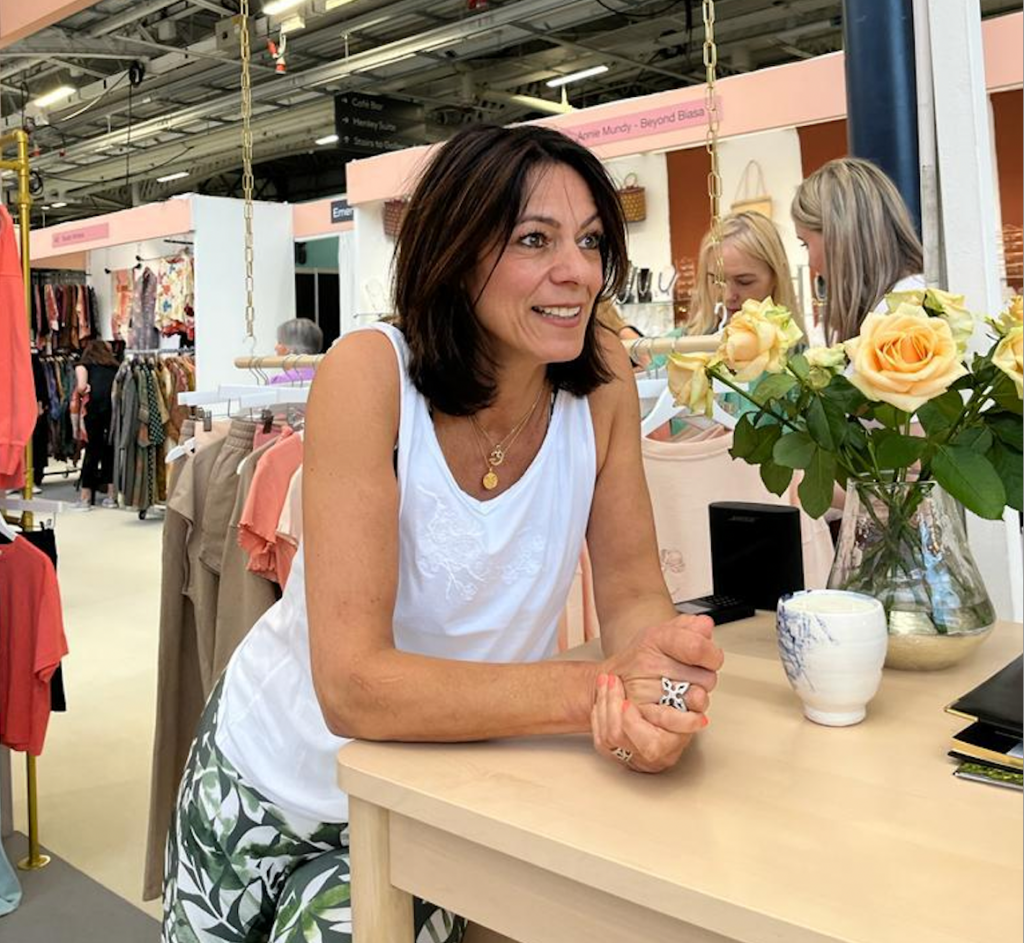
Live Frankly: Let’s set the scene. What do you do, in your own words?
Gillian Ridley Whittle: I’d say I’m a leader. I’m a learner. I’m also a human being, a CEO, a wife, a daughter, a mother and a friend.
In terms of my job role, I’m the founder of Peachaus, which is an ethical underwear and clothing brand. I actually call it a lifestyle brand. Because for me, it’s so much more than just selling clothes. I want it to be a platform that gives hope, drives change and advocates for a fairer fashion industry.
What does a typical day look like for you?
When I first wake up, I generally do some breathing work or meditation and I always go for a walk.
Then, a day of hustling begins. I’ve got a very small team so I’m doing everything from driving vans to trade shows, lugging boxes of stock around, setting up pop-up shops, Zoom meetings, speaking to lawyers about shareholder agreements, negotiating terms with suppliers, and networking…
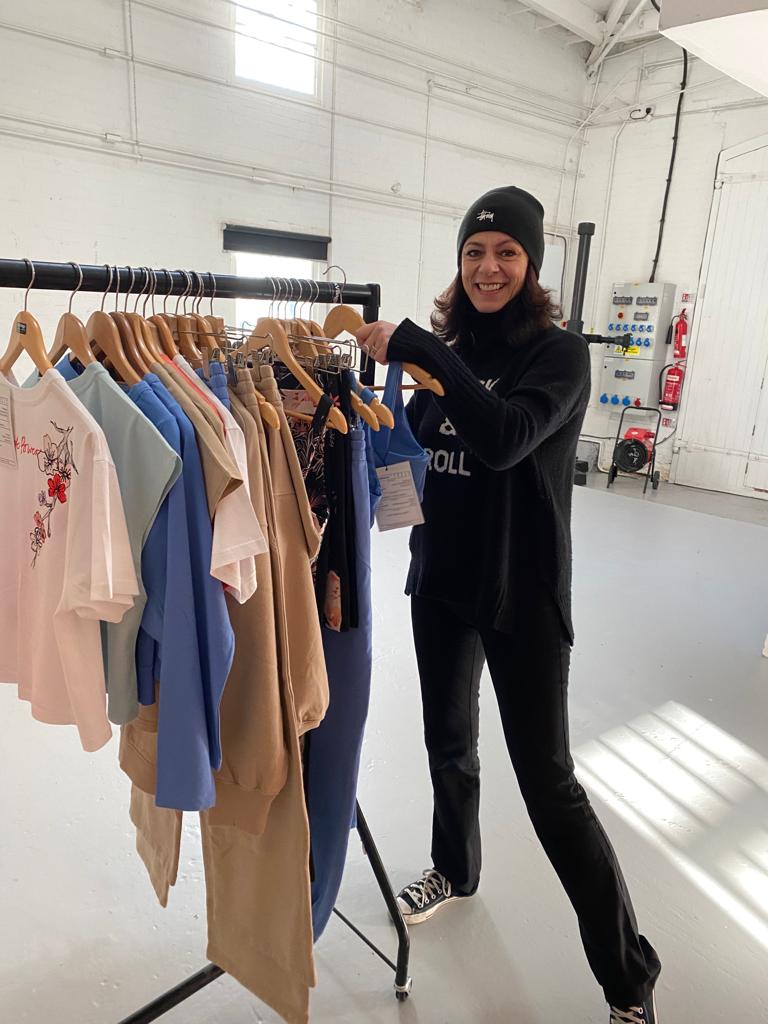
What did you do before?
I’ve had a great career in the fashion industry spanning 25 years. I’ve worked for many retailers including Marks and Spencer and most recently as Topshop’s Fashion Director.
I’m proud of my career. But I now realise I’ve been part of an industry that has little regard for people or planet – and it has profited at any cost to both of those. In the last few years, I have become increasingly uncomfortable with this. It doesn’t feel right. I need to be a part of something better – to repair, regenerate, and create fairness in the fashion industry.
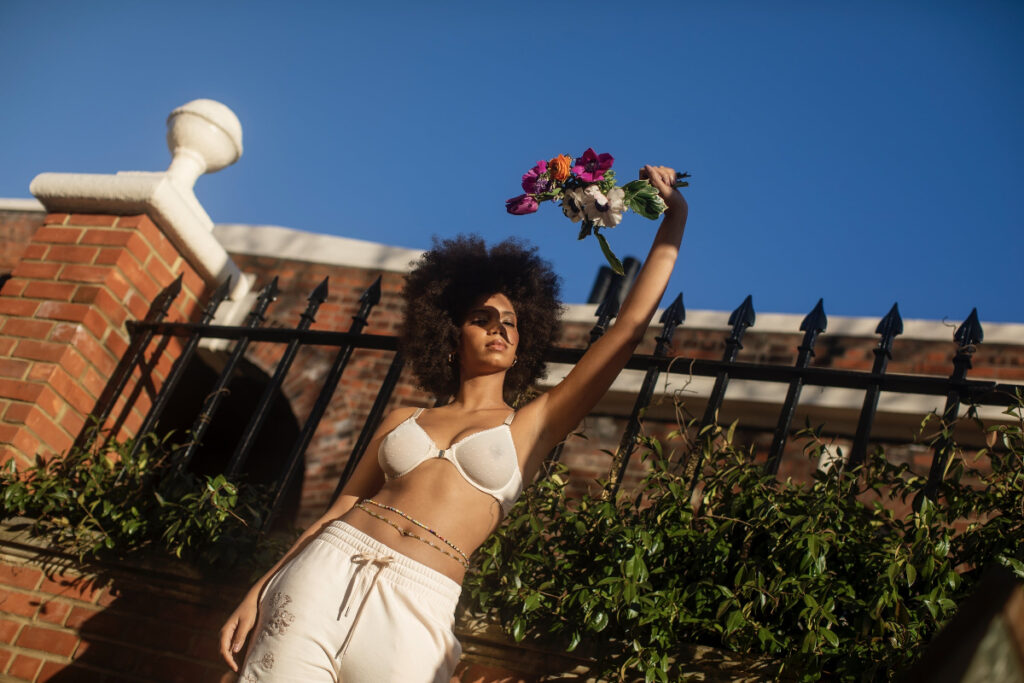
What was your lightbulb moment?
There wasn’t one moment. It was a gradual realisation, starting when I left Marks and Spencer after ten years for a high-profile job in Australia running womenswear for Target, in 2014.
I thought I wanted a bigger job managing more people and earning more money. That’s absolutely what my ego told me. But in reality, the job itself was high-stress and long hours. I found myself becoming anxious, tense, and I wasn’t being kind to myself or spending much time with friends and family.
It was around the same time that I started to think about the issues surrounding fast fashion: mass consumption and overproduction, maximising every margin at the expense of suppliers, all the while going to cheaper manufacturing sources… The profit at any cost was really starting to not sit right with me. And there was little regard for sustainability.
I found myself disillusioned about the career that I’d always wanted – it wasn’t making me happy and I realised I needed to make a change.
I read a book called You Can Heal Your Life by Louise Hay. It inspired me to come up with the idea for a brand which is kind to people and planet. I spent some time developing the concept of Peachaus – I created mood boards, a deck, even a movie.
But, then I started a new job at Myer in Australia and the idea went on the shelf…
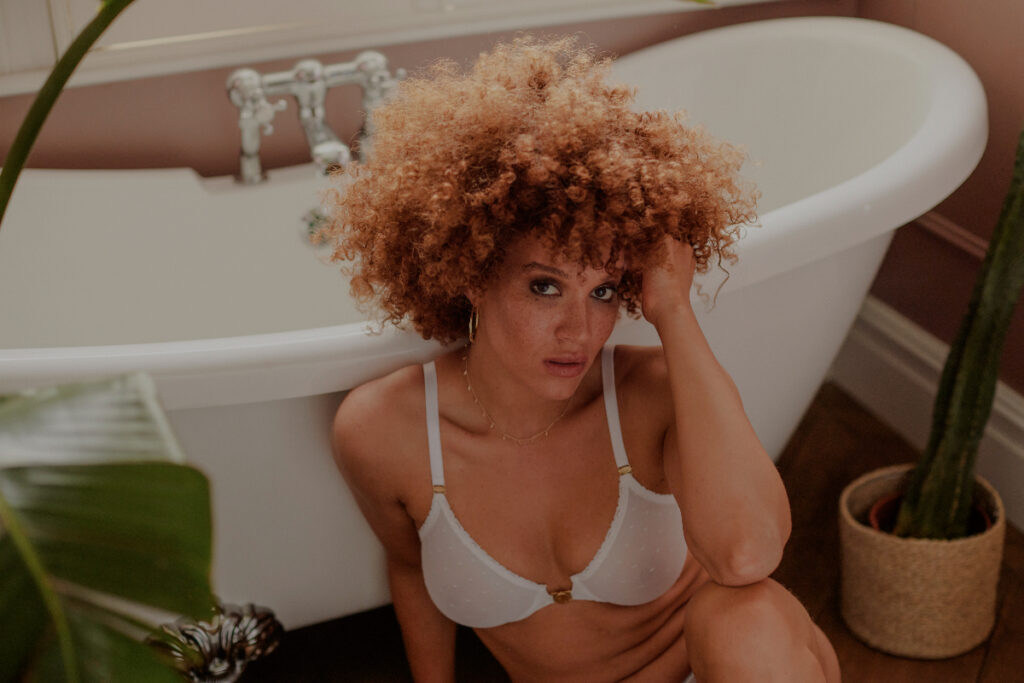
What did you do next?
In 2018 we moved back to the UK, and I was offered a dream job to be Topshop’s Fashion Director.
Then COVID hit and my first new collection got cancelled under the Force Majeure clause. This allowed brands to cancel orders even if they were already sewn and ready to be shipped. Many brands initially didn’t accept responsibility for the stock and some have still not paid up, causing huge issues for suppliers and workers.
These problems only compounded as Topshop went into administration. Working within the leadership team during this time was challenging. I knew I couldn’t do it anymore.
All my stars aligned when Topshop was sold to ASOS, and I got made redundant in early 2021.
At this point, I really had to find my truth, and my truth was that I needed to be a leader and pioneer change. I was determined to get Peachaus going, whatever it takes. I worked tirelessly to get the brand ready for investment. Peachaus launched a year later, in March 2022.
What has turned out better than you expected?
I’ve been blown away by the people that I’ve met and the response to our mission. So many people are offering help, willingly giving advice and rooting for us to succeed because they believe in what we’re doing and they know it’s tough.
Collaboration has been, and will be, key to our success.
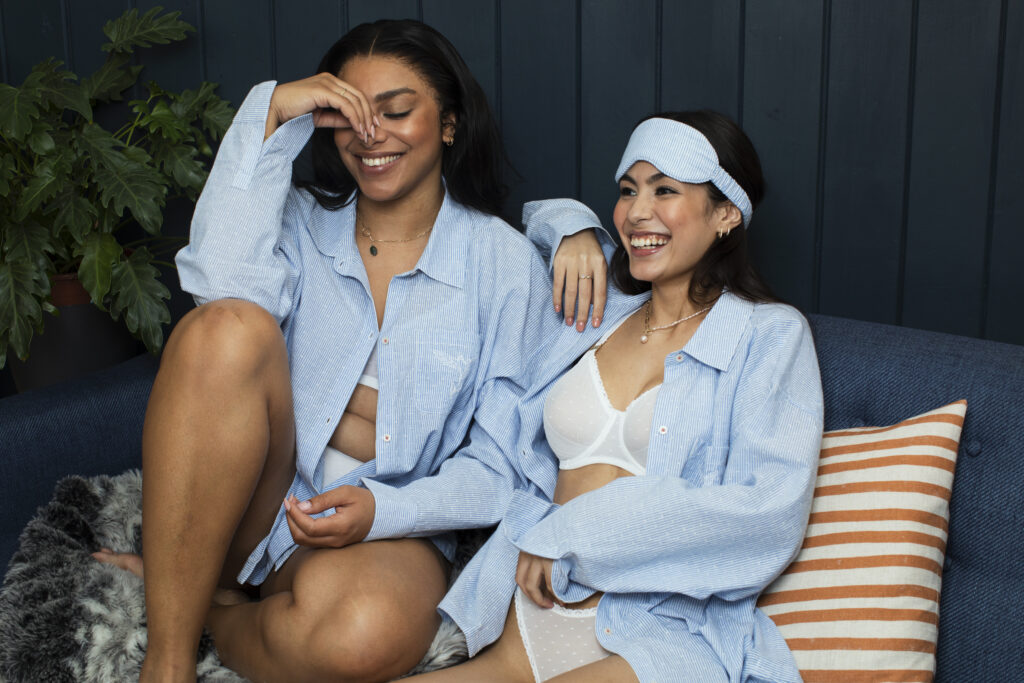
What have you found surprising along the way?
I think the most rewarding thing is how much I have personally learnt. Over the last year, I’ve made so many mistakes. I’d do lots of things differently. But I have grown so much. I now realise I’m a good leader. I’m more driven than ever and I know I’m on the right path.
I’ve realised that being a part of change requires a different way of thinking. And actually, what I really believe, and have learnt from my personal experience, is you can change your life and the world around you by the way you think. That’s very powerful.
What’s next?
We have ambitious plans. We want to offer a Peachaus experience. So, Peachaus parties are in the works. We want to launch a lifestyle store where we invite other like-minded brands to join and we support new creative talent. We even hope to host a festival at some point.
I’ve committed to going into schools and colleges every month to help enlighten young people about the harm of fast fashion and overconsumption, and to help them make better choices.
Also, we’re supporting a woman called Barbara Burton who is setting up a social enterprise backed by the government called Behind Bras. The plan is to train prisoners to make underwear and clothing so that when they come out of prison they have more chance of building a career and less of reoffending.
I truly believe we are creating a brand that’s going to be part of the future.
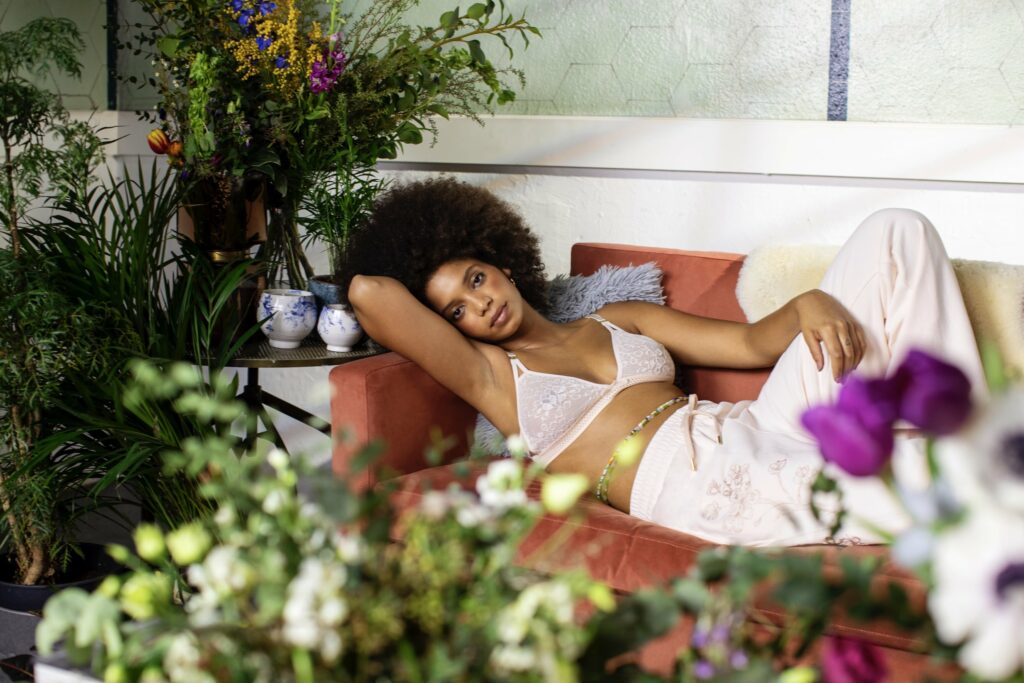
Explore Peachaus
Everyday ethical and sustainable leisurewear, sleepwear and underwear.


